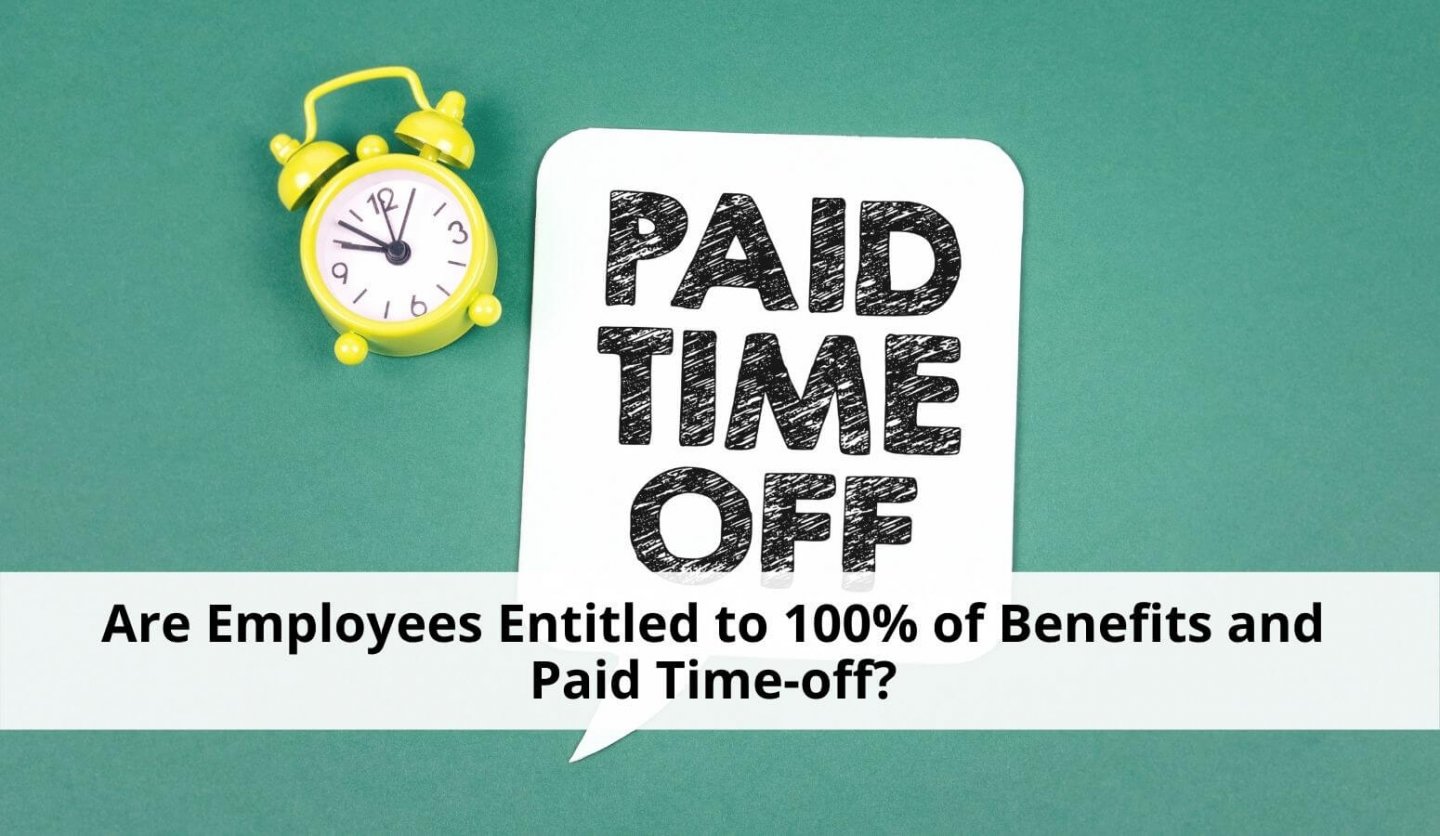
Benefits And Vacation Time During COVID-19
Are employees entitled to 100% of benefits and vacation time?
As the province wavers between phases and some employees enter month 8 since being laid off, employees may be wondering what their rights are while they are off work for COVID-19 related reasons. We are often asked if employees are entitled to paid time off, and/or if employees are entitled to any benefits and vacation time while they are off work.
With respect to time off, unless you are performing work remotely, your employer does not have an obligation to pay you while you are away from the workplace. You should consult your employee handbook or any policies your employer has put in place with respect to paid time off, as they may advise differently. However, if no such policies exist, the only way to be paid by your employer while off work is to use unused vacation or personal/sick days.
Benefits and Vacation Time During COVID-19
As part of your benefits, you may have access to Short-Term Disability or Long-Term Disability benefits, which are meant to provide financial assistance while an employee is off work due to disability. However, to qualify for these benefits employees must meet the insurer’s definition of disability.
As for benefit continuance, technically speaking, they do not need to be continued if the reason why you are off work is related to COVID-19. Before COVID-19, if an employee was temporarily laid off, the layoff could only last up to 13 weeks before it became a (permanent) termination. An employer could extend the temporary layoff period to up to 35 weeks by continuing the employee’s benefits or pension. However, benefits/pension needed to have been continued from day 1 of the layoff (i.e. the employer could not reinstate them at week 14 in order to extend the layoff period to 35 weeks).
However, all this changed in May 2020 when the Ontario government introduced a new regulation called the Infectious Disease Emergency Leave regulation, which stipulates that employees whose hours of work have been reduced or eliminated for reasons related to COVID-19 are deemed to be on Infectious Disease Emergency Leave (IDEL) – not temporarily laid off as they would have been considered before. Because of this change, the temporary layoff clock has not begun to tick, so there is no obligation for employers to continue their employees’ benefits in order to extend the temporary layoff period to 35 weeks.
Employees with reduced/eliminated hours will be deemed to be on IDEL from March 1, 2020 to January 2, 2021. Beginning on January 3, 2021, employees will no longer be deemed to be on IDEL. The regular rules around temporary layoff will resume, and employers will need to resume employees’ benefits starting that day if they wish to extend the layoff period past 13 weeks.
It is important to note that the information above relates to rights under the Employment Standards Act. You may have rights that arise from your contract (or employee policies) or from the common law (judge-made law). A substantial change to working conditions, such as a temporary layoff or a reduction in pay/hours, can amount to a constructive dismissal at court.
Does the employer have to pay me while I am staying home as a result of a work refusal?
If you are continuing to perform your work during the investigation remotely, your employer must pay your regular wages for that work. If you are not working, your employer does not have an obligation to pay you while you are away from the workplace, unless the employer has an existing policy which provides otherwise.
To better understand your entitlements and explore the viability of a claim during these unprecedented times, we encourage employees to seek legal advice. We at Whitten & Lublin are happy to provide insight and advice into your specific circumstances. If you’re looking for employment lawyers and would like more information about what Whitten & Lublin can do for you, please contact us online or by phone at (416) 640-2667 today.
Author: Nadia Halum



